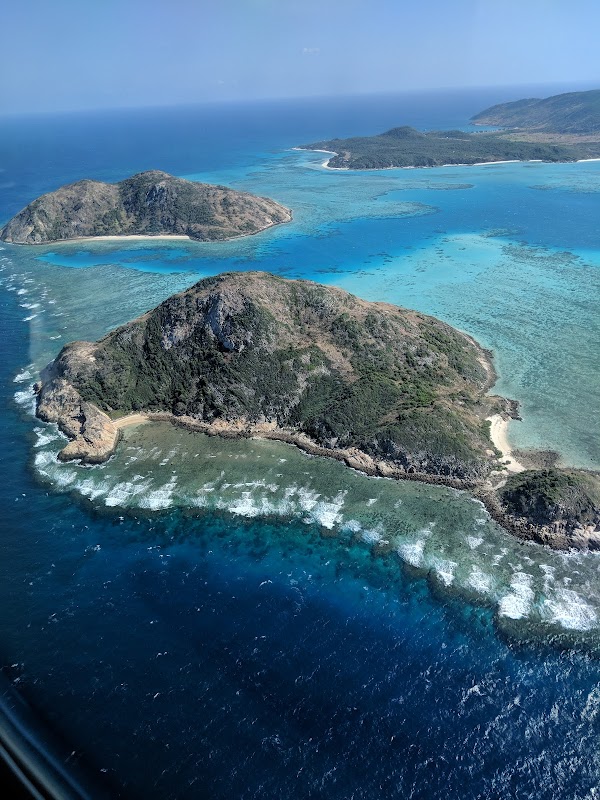
Riding the Currents: Provincial Canoe Racing Championships in Gizo, Solomon Islands
Experience the heart-pounding Provincial Canoe Racing Championships in Gizo, where local paddlers race across the vibrant waters of Solomon Islands' Western Province. This event combines fierce athleticism with stunning natural surroundings—perfect for adventure travelers eager to witness dynamic sport and tropical beauty.
Timing Your Visit
Plan to attend during the dry season (May to September) for calmer seas and fewer rain interruptions during the races.
Hydration and Sun Protection
Bring and drink plenty of water, and use sunscreen and a hat to protect yourself from strong tropical rays.
Footwear for Spectators
Wear sturdy sandals or shoes with good grip to navigate volcanic rocks and uneven village paths around the race circuit.
Respect Local Customs
Engage respectfully with local communities who host the event, and ask permission before photographing people and villages.
Riding the Currents: Provincial Canoe Racing Championships in Gizo, Solomon Islands
The Provincial Canoe Racing Championships in Gizo, Western Province of the Solomon Islands, offer an immersive dive into a fiercely spirited contest of speed and endurance on the South Pacific’s shimmering waters. Set against the backdrop of lush island jungles and vibrant coastal villages, these races bring local communities together while challenging paddlers to respect a powerfully moving environment.
Gizo’s lagoon dares competitors to move swiftly but tactically, its currents pushing forward and pulling back with a life of their own. The typical race covers several kilometers, demanding not only muscular strength but sharp awareness of tides and weather shifts. Racers navigate around small islands and coral reefs, where sudden gusts of wind can tip the balance between victory and struggle.
Spectators too find themselves drawn into the vitality of the event, where the air is thick with competitive energy and the rhythmic splash of paddles cutting water. The surroundings are intensely alive—coconut palms sway like silent spectators while sea breezes carry the scent of salt and earth. Visitors to Gizo during this time should prepare for tropical heat that climbs steadily through the day, alongside unpredictable afternoon showers.
Practical preparation involves lightweight, quick-drying clothing for participants and sun protection for everyone. Staying hydrated is critical when standing long hours under the sun or racing through the challenging courses. Footwear that secures well to slippery boats is a must for paddlers, while spectators benefit from sturdy shoes for uneven coastal terrain and informal village walks.
The championships usually take place in mid-year months when seas are calmer, offering a reasonable window for planning a visit. Beyond the races, Gizo invites exploration with scenic hikes through rainforest trails, where the land is steep but rewarding, offering views that stretch across islands and onto the horizon of endless ocean.
Whether you come to paddle or watch, the Provincial Canoe Racing Championships reveal a natural world fiercely itself—demanding respect, focus, and a readiness to engage fully with the elements and local culture. This event is more than sport; it’s a vibrant example of human connection to a powerful seascape, ready to inspire any outdoor adventurer.
Nearby Trips
All Adventures
Boat Charters
Water Activities
Adventures near Gizo, Western Province, Solomon Islands
Discover the unique and memorable adventures that make Gizo, Western Province, Solomon Islands special.
Frequently Asked Questions
When is the Provincial Canoe Racing Championships held in Gizo?
The event generally takes place during the dry season, between May and September, when weather and sea conditions favor safe and competitive races.
What should spectators expect in terms of facilities and access?
Gizo offers basic amenities near the race venues, including local markets and informal food stalls, but accommodations and access may vary, so plan ahead for transport and supplies.
Is prior canoe racing experience necessary to watch the event?
No experience is needed to enjoy the spectacle. Spectators can find vantage points along the coastline and local villages without technical knowledge.
Are there opportunities to try canoeing as a visitor?
Yes, some local operators provide canoe rentals or guided paddling tours, but these are best arranged through lodges or community groups with safety in mind.
What wildlife might be observed around the race area?
The coastal waters and reef areas around Gizo host diverse marine life, including tropical fish, reef sharks, and occasional sea turtles that may swim along the race route.
How should visitors approach local customs during the event?
Respect for local traditions is important. Ask permission before photographing people, participate in community events if invited, and support local vendors to enrich the experience.
Recommended Gear
Lightweight Quick-Dry Clothing
Keeps you comfortable and dry during races and while spectating in warm, humid conditions.
Hydration Pack or Bottled Water
Critical to stay hydrated under the hot sun and tropical heat.
Non-Slip Water Shoes
Provides grip and protection when stepping into and out of canoes on wet, slippery surfaces.
Sun Hat and Sunscreen
Protects from strong UV exposure during long periods outdoors.
Local Insights
Hidden Gems
- "Kusaghe Island viewpoint offers panoramic views of the racecourse and surrounding islands that few visitors access."
- "The nearby Nusa Roviana Lagoon is a peaceful spot to observe traditional canoe crafting."
Wildlife
- "Keeled sea snakes occasionally glide near shorelines during races."
- "Tropical birdlife including kingfishers and frigatebirds circle above the lagoon."
History
"Canoe racing in the Western Province roots in ancient maritime traditions, reflecting the seafaring skill that shaped Solomon Islands’ island culture across centuries."
